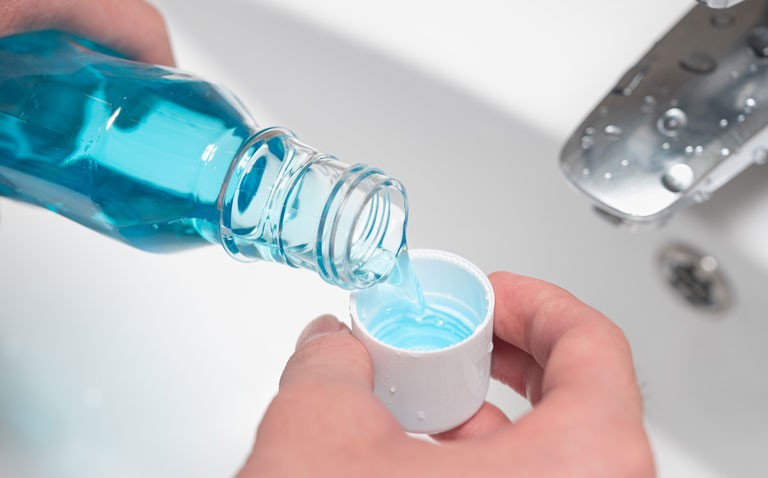Prior work revealed how compounds which disrupted the lipid envelope of the HIV virus abolished viral infectivity and researchers wondered if this was also possible with COVID-19.
A team from the Division of Infection and Immunity, University of Cardiff, sought to determine if destroying the lipid envelope of COVID-19 would inactive the virus. They focused on compounds present in commonly used mouthwashes, based on preliminary evidence which had shown how a related coronavirus, HCoV-229E, had been inactivated by cetylpyridinium chloride (CPC), a well-known antimicrobial agent present in commercial mouthwashes. The team studied seven different commercial mouthwashes including Corsodyl, Listerine Cool Mint, Listerine Advanced and Dentyl Fresh Protect, which contained varying amounts of ethanol and CPC. The ability of the different mouthwashes to reduce viral infectivity was tested with a 30-second treatment using EN 14476, which is an industry standard virucidal disinfectant test.
Findings
Two Dentyl mouthwashes which contained CPC together with Listerine Advanced, with 23% ethanol and ethyl lauroyl arginate, passed the EN 14476 standard test. All three products were able to completely eradicate COVID-19, giving a > 5-log reduction in viral titres (equivalent to a 99.99% reduction in viral load). Mouthwashes containing less than 23% ethanol had no effect on viral infectivity and chlorhexidine, an antiseptic found in Corsodyl, was relatively ineffective (< 2 log-fold reduction). Thus mouthwashes containing 0.07 to 0.1% CPC (Dentyl Dual Action, Dentyl Fresh Protect) or at least 23% ethanol (Listerine Advanced) had a very high in vitro, anti-viral activity against COVID-19.
A potential limitation of the study was that the results were only able to demonstrate the potential of the mouthwashes to reduce COVID-19 infectivity in the oropharynx. The research did not assess how quickly viral shedding replenished live virus in the oropharyngeal cavity, given that only a 30 second treatment was used, or if this treatment could ultimately reduce in vivo transmission of COVID-19.
Citation Statkute E et al. Brief Report: The virucidal efficacy of oral rinse components against SARS-CoV-2 in vitro bioRxiv preprint










